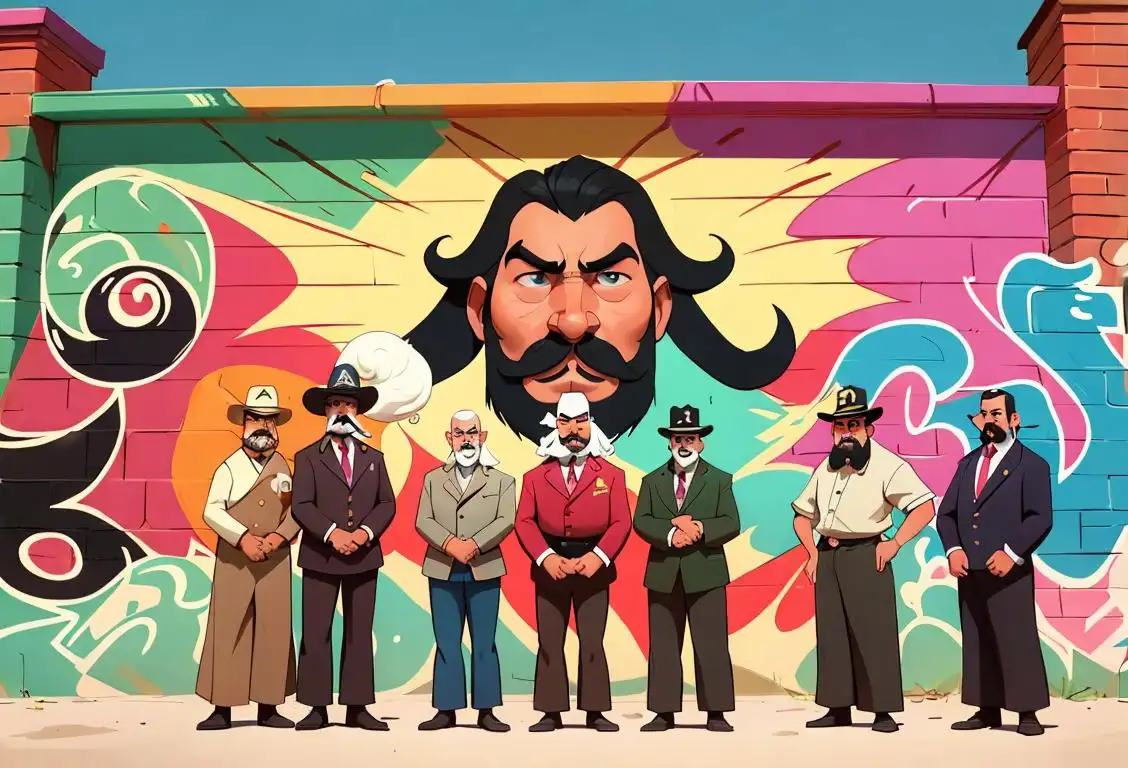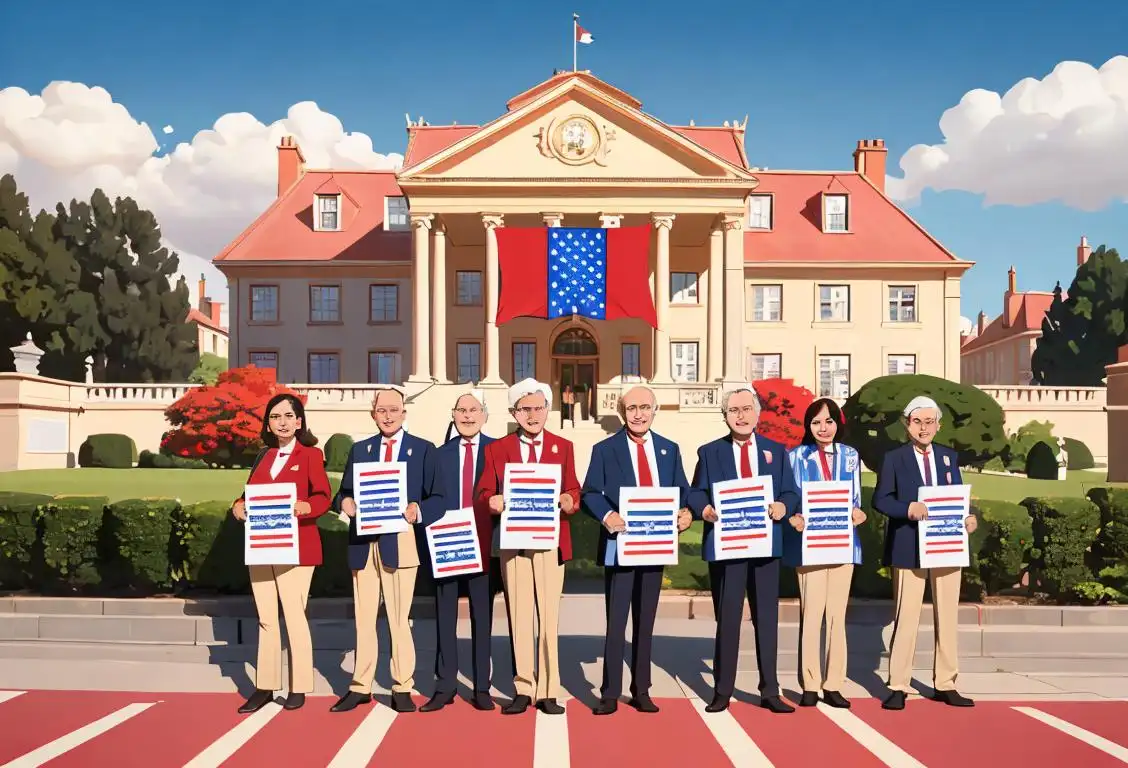National Mustache Day

Ah, the grand spectacle that is National Mustache Day, the day when mustaches rule supreme, upstaging their full-beard counterparts (sorry ‘No-Shave November’). No form of facial hair quite commands respect and admiration like the standalone mustache, and on this day, we give it the spotlight it deserves.
When is Mustache Day?
It's national mustache day on the 27th September.
History of National Mustache Day
When we look back in the annals of internet history, there’s no evidence to suggest that National Mustache Day has been a ‘thing’ for long. Our data shows only a sprinkle of 32 mentions online, with the most mentions happening on the 27th September 2020. How this day sprouted its silken hair, we’ll probably never know. But it's safe to say it has now been shaved into the annual calendar.
Why Celebrate Mustaches?
Mustaches are more than mere facial hair, they’re symbols of style, machismo, and sometimes, downright quirkiness! They've been sported by some of history’s most iconic figures- from Salvador Dalí’s eccentric skyward-pointing mustache to Tom Selleck’s rugged Magnum P.I. look.
How Do We Observe National Mustache Day?
It’s simple. Grow a mustache! Whether you choose a handlebar, a chevron, or a Fu Manchu, is entirely up to you. People also show their appreciation for the day by sharing pictures of their impressive 'staches on social media, or by celebrating famous mustachioed icons. Just remember to keep it fun and respectful!
And Remember...
Caring for a mustache requires patience, grooming and a whole lot of love. This National Mustache Day, salute the 'stache and all the attention, conversation, and head-turns it inevitably brings.
History behind the term 'Mustache'
300 BCE
Ancient Origins
The history of the term 'mustache' can be traced back to ancient times. The ancient Egyptians are believed to have been the first civilization to cultivate and style facial hair, including the mustache. Mustaches were seen as a symbol of masculinity, power, and nobility.
300 BCE - 500 CE
Greek and Roman Influence
During the Hellenistic period and the Roman Empire, the popularity of mustaches spread throughout the Mediterranean region. Mustaches became associated with authority and wisdom. In ancient Greece, philosophers such as Socrates and Plato were often depicted with prominent mustaches.
5th - 16th century
Middle Ages and Renaissance
The Middle Ages saw a shift in attitudes towards facial hair. Mustaches were no longer viewed as a sign of power but became associated with barbarism. The Catholic Church even considered shaving the upper lip as a form of penance. However, during the Renaissance period, facial hair started to regain popularity among the nobility, and mustaches became fashionable again.
18th century
Mustache Evolution
The 18th century witnessed a significant evolution in mustache styles. The handlebar mustache, characterized by its upward-swept ends, gained popularity among European aristocrats. This distinctive style required the use of wax or pomade to achieve the desired shape. Mustaches became a symbol of wealth, elegance, and sophistication.
19th century
Colonial Influence
The British Empire played a pivotal role in popularizing mustaches worldwide during the 19th century. British soldiers, known as 'Tommy Atkins,' often sported mustaches as a symbol of military pride. The trend caught on in other countries under British rule, cementing the mustache's association with colonialism.
20th century
Changing Perceptions
The early 20th century saw a decline in mustache popularity. The introduction of safety razors and shifting cultural norms led to cleaner-shaven faces becoming more fashionable. However, the mustache experienced a resurgence in the 1960s and 1970s, influenced by cultural icons like Salvador Dalí, Freddie Mercury, and Burt Reynolds.
21st century
Mustache Movember
In recent years, November has become synonymous with the 'Movember' movement, a global charity initiative encouraging men to grow mustaches to raise awareness about men's health issues. Mustaches are now seen as a symbol of support and solidarity, transcending fashion trends and embracing a more meaningful purpose.
Did you know?
Did you know? Albert Einstein had a mustache for over 50 years, and he believed it helped him save time when drinking coffee because it filtered the liquid!Tagged
awareness fun rememberanceFirst identified
9th April 2015Most mentioned on
27th September 2020Total mentions
32Other days
Voters Day
Unemployed Day
Suicide Prevention Day
Cancer Survivors Day
Memorial Day
Bestfriends Day
Heroes Day
Liberation Day
Pumpkin Day
Gymnastics Day









